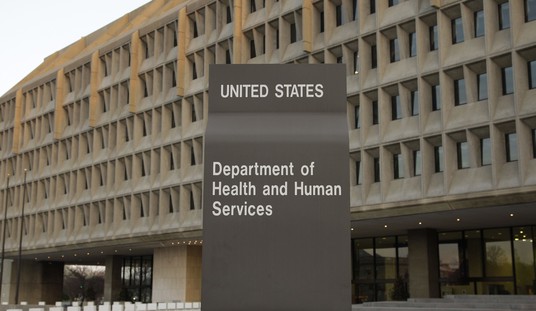The probe into Russian collusion is about to get a lot more personal. Bloomberg reports that the main lender for the Trump family’s financial empire has begun cooperating with Robert Mueller’s investigation after the special counsel got a subpoena for their records. Democrats in Congress have long demanded to know whether Trump’s dealings with Deutsche Bank had any connections with Russia, but Trump warned early on that he’d act if Mueller attempted to go that far outside his mandate:
Special prosecutor Robert Mueller zeroed in on President Donald Trump’s business dealings with Deutsche Bank AG as his investigation into alleged Russian meddling in U.S. elections widens.
Mueller issued a subpoena to Germany’s largest lender several weeks ago, forcing the bank to submit documents on its relationship with Trump and his family, according to a person briefed on the matter, who asked not to be identified because the action has not been announced. …
Deutsche Bank for months has rebuffed calls by Democratic lawmakers to provide more transparency over the roughly $300 million Trump owed to the bank for his real estate dealings prior to becoming president. Representative Maxine Waters of California and other Democrats have asked whether the bank’s loans to Trump, made years before he ran for president, were in any way connected to Russia. The bank previously rejected those demands, saying sharing client data would be illegal unless it received a formal request to do so. Trump has denied any wrongdoing.
Five months ago, Trump called any move by Mueller into unrelated financial issues a “red line” that could prompt him to exercise his executive authority in regard to the special counsel. That depended on whether the inquiry had a relation to the Russian question:
SCHMIDT: Last thing, if Mueller was looking at your finances and your family finances, unrelated to Russia — is that a red line?…
TRUMP: I would say yeah. I would say yes. By the way, I would say, I don’t — I don’t — I mean, it’s possible there’s a condo or something, so, you know, I sell a lot of condo units, and somebody from Russia buys a condo, who knows? I don’t make money from Russia. In fact, I put out a letter saying that I don’t make — from one of the most highly respected law firms, accounting firms. I don’t have buildings in Russia. They said I own buildings in Russia. I don’t. They said I made money from Russia. I don’t. It’s not my thing. I don’t, I don’t do that. Over the years, I’ve looked at maybe doing a deal in Russia, but I never did one. Other than I held the Miss Universe pageant there eight, nine years [crosstalk]…
SCHMIDT: But if he was outside that lane, would that mean he’d have to go?…
TRUMP: No, I think that’s a violation. Look, this is about Russia.
That’s the $64,000 question, right? What does Deutsche Bank’s loans to Trump have to do with Russian influence on the election? The bank has worked with Trump since the 1990s, long before the tycoon decided to enter politics as a candidate. The special counsel’s mission — or at least its original mandate — was supposed to determine whether the Trump campaign colluded with Russian intelligence to hack the DNC and John Podesta, as well as coordinate a propaganda campaign during the election. Deutsche Bank seems like a target far afield from that mission, and more like Mueller has taken on a far broader role as a shadow Department of Justice.
In fact, this is rather curious. Democrats may have wanted to depose Deutsche Bank but Russia was only an excuse. They wanted to get to Trump’s financial records to dig up any tax evasion or other financial crimes to use against him. Without any clear connection to Russian collusion in 2015-16, why exactly does Mueller want to see those records? Has this become a tax evasion case? If so, what dirt could Mueller get that the IRS couldn’t make stick in tax audits every year for the last two decades, the last eight of which took place during the Obama administration’s politicization of the IRS?
However, that is the unfortunate history of special counsels under any name over the last few decades. The nature of their authority lends itself to ever-expanding scopes as they attempt to gain leverage over material witnesses. We’ve already seen that with the indictment of Paul Manafort and Rick Gates for money laundering and rarely-charged FARA violations, none of which had to do with the theory of Russian collusion that started the investigation. This is why appointing special counsels is a very bad idea; one should only make that choice when all of the other options are so bad that they make a special counsel look good, and it’s arguable as to whether that was the case in May.
The other $64,000 question is what Trump does now. He has the authority to fire Robert Mueller, or more accurately to order Rod Rosenstein to do so, but that puts Trump in position for an impeachment — especially if Rosenstein refuses. Trump likely didn’t commit obstruction in the legal sense in firing Comey, but he’d be clearly committing obstruction in the political sense if he fired Mueller now. Trump’s supporters would be delighted, but so would Democrats in Congress who might get enough Republicans to wonder just what Trump has to hide after all. This could be the briar-patch toss for which Democrats have salivated since Mueller got appointed seven months ago.








Join the conversation as a VIP Member